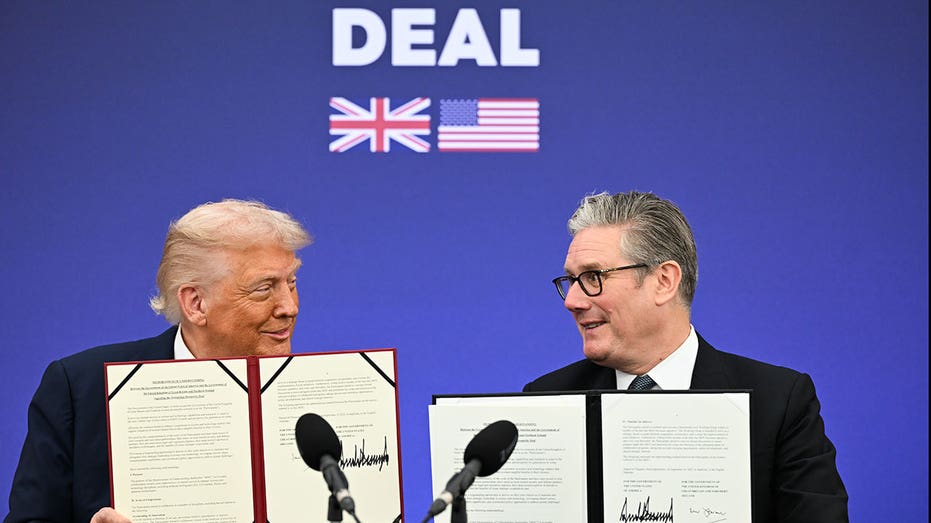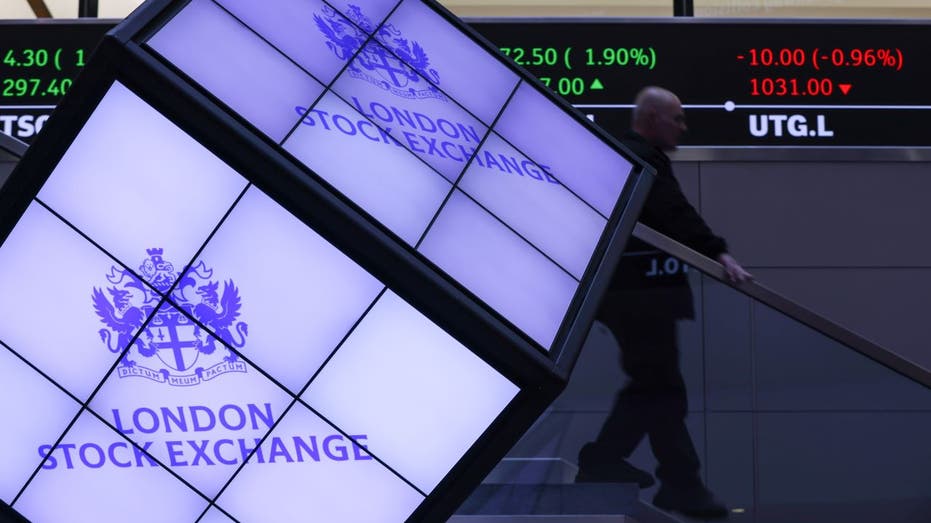Mercatus Center George Gibbs political economy chair Veronique de Rugy weighs in on the outcome of the negotiations between the United States and United Kingdom and more on ‘Varney & Co.’
Britain’s reputation as a country full of get-up-and-go seems to have got up and left the kingdom. Much of the blame for that falls on British Prime Minister Keir Starmer and his colleagues, who led the left-leaning Labor Party to an epic victory in the middle of last year, but the landslide win hasn’t been good for the British economy.
The truth is that Britain’s primary income deficit — the difference between what the government raises from taxpayers compared to what it spends, excluding debt payments — has deteriorated rapidly over the last few years. In this year’s second quarter, the primary deficit totaled 16.8%, more than double the deficit in the fourth quarter of last year and the worst showing since the second quarter of 2023, according to government data.
“The biggest problem is the current British government is remorselessly negative,” said Alan Mendoza, executive director of the Henry Jackson Society, a London-based think tank. “That’s not an environment to encourage investment.”
UNCLE SAM TO THE RESCUE. TRUMP HELPS OUT THE UK WITH A $350 BILLION TECH DEAL
A red telephone box stands in front of the clock tower with Big Ben in London on May 22, 2025. (Julia Kilian/picture alliance via / Getty Images)
In many ways, that negatively explains why many foreign investors have now openly stated they won’t invest in Britain.
Contrast the approach with that of the current U.S. administration, which is more than friendly to business owners and corporate chieftains. “In America, one thing President Trump has done is to say, ‘USA, USA, USA,’” Mendoza said. In other words, the U.S. president cheerleads America’s businesses.
The difference in foreign investment between the U.S. and the U.K. is massive. Foreign Direct Investment in America, which involves setting up companies, increased by $83 billion in the second quarter this year. Compare that with the U.K., which saw FDI decline by 5.6 million British pounds ($7.3 million) during the same period, according to data from Trading Economics. That is clear evidence that the U.S. is far more attractive to investors.
But there are other concerns in Britain besides negativity, such as questions about the government’s policies, which seem to flip-flop with alarming regularity.
Week after week, there’s been massive uncertainty about the forthcoming U.K. budget, Mendoza said. Many critics say he’s not wrong to be concerned because there are day-to-day whispers among the political class about whether U.K. Chancellor Rachel Reeves (the equivalent of treasury secretary) is about to jack up tax rates and break the party’s election manifesto. “That doesn’t encourage the U.K. as a place to invest in,” he said.
Requests for comments from the chancellor’s office were not answered.
STARMER’S DIGITAL ID WORK REQUIREMENT SPARKS UPROAR FROM UK’S LEFT AND RIGHT

President Donald Trump and Prime Minister Keir Starmer sign the Tech Prosperity Deal during a business reception at Chequers, near Aylesbury, United Kingdom, on Sept. 18, 2025. (Chris J. Ratcliffe/Bloomberg via / Getty Images)
There’s broad distaste with the economic environment among U.K.-based entrepreneurs. Almost two-thirds (63%) of entrepreneurial business leaders said they believe the British government is anti-business, according to a survey released Friday by Helm, a community of high-growth business founders.
“A year ago, our members were saying they were planning on hiring,” said Andreas Adamides, CEO of Helm. But before they got round to hiring, the Labor government decided that employers would face an increase in national insurance (similar to U.S. FICA payments). “Once national insurance was set to increase, that goal of hiring flipped around,” he said. Effectively, it’s an increase in tax on companies that want to hire people. And of course, that tends to lead to fewer available jobs.
Other data from Helm shows that zero members of the organization would vote for the Labor Party. “I was surprised it was zero.” Separately, only 6% said they would vote for the right-leaning Conservative Party. Approximately three-fifths (58%) of the members were undecided, according to the survey.

The logo of London Stock Exchange in the company’s office atrium in London on Jan. 3, 2024. (Hollie Adams/Bloomberg via / Getty Images)
The concerns of British entrepreneurs aren’t just about money and government policies, Adamides said. There is always a serious downside to starting a new business. Business successes tend to get hyped in newspapers, but things don’t work out that way for everyone.
GET FOX BUSINESS ON THE GO BY CLICKING HERE
“If a founder starts a new business, they have likely risked it all to build something meaningful,” he said. “They don’t tend to have a proper pension, and if they do well with growing the business, then they can get hit with high capital gains taxes.”
“I have seen a founder commit suicide in recent times,” Adamides said. “The man’s company was built over 20 years, and he lost his home and business and ended his life. It is not a matter that they didn’t make it big.”